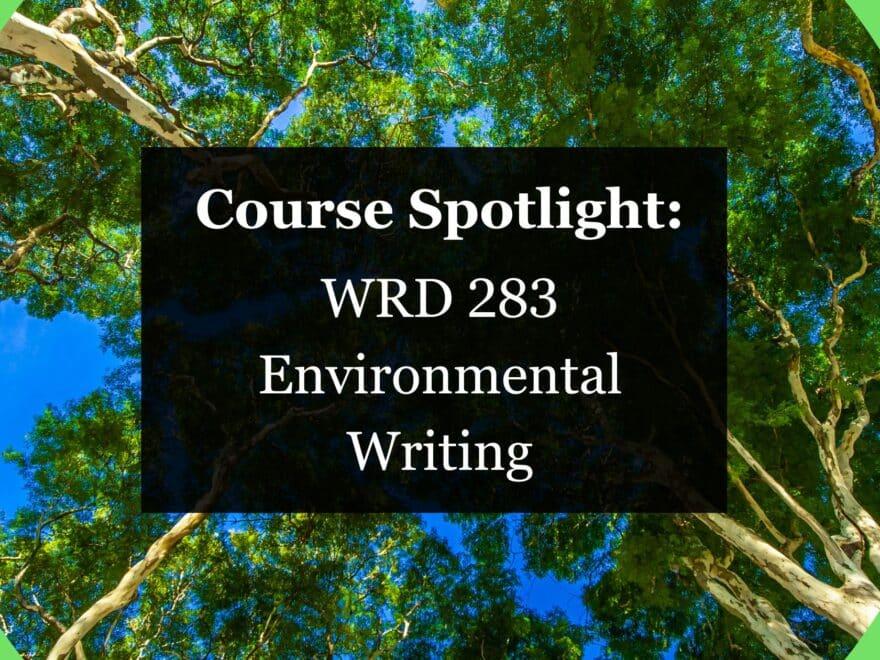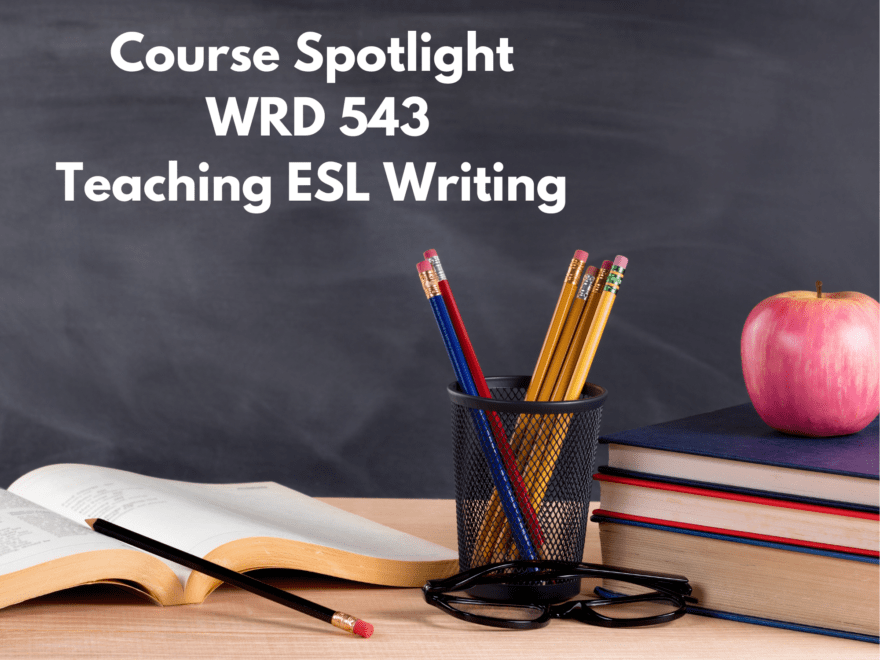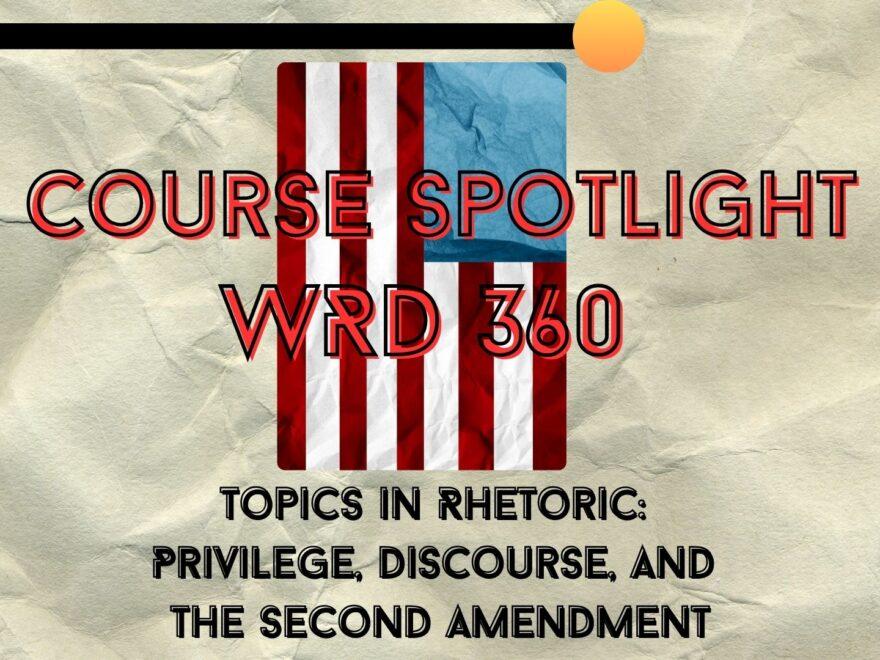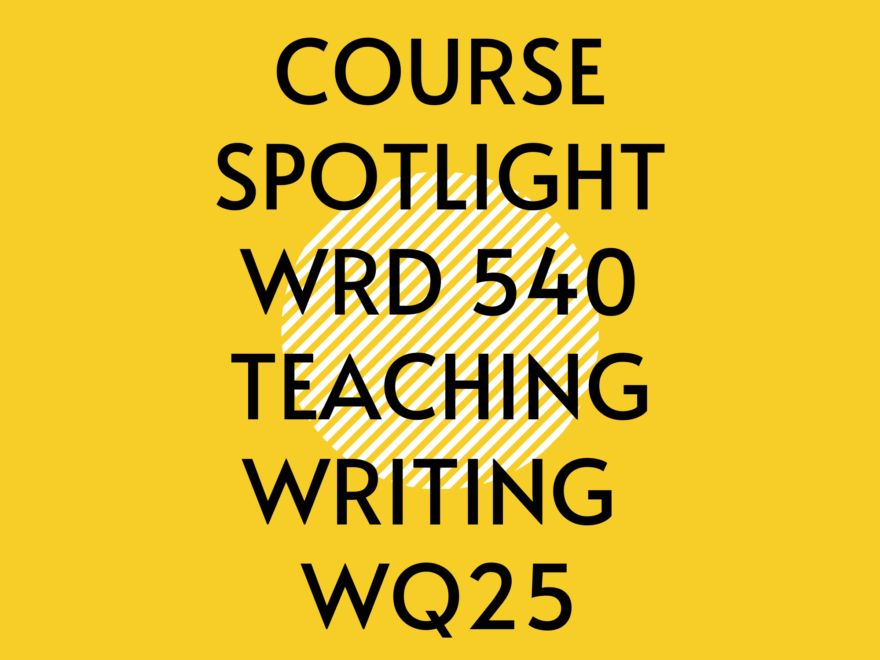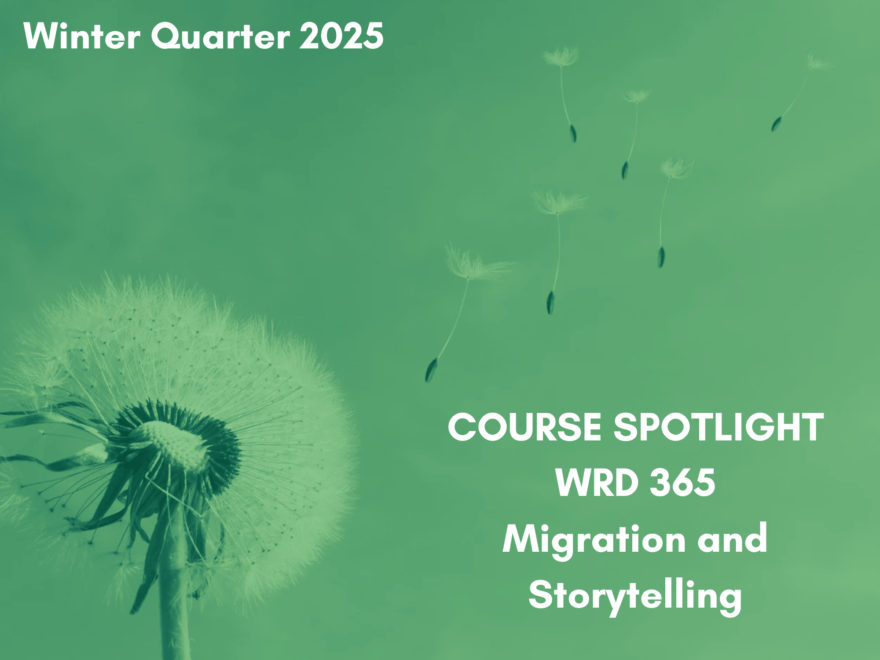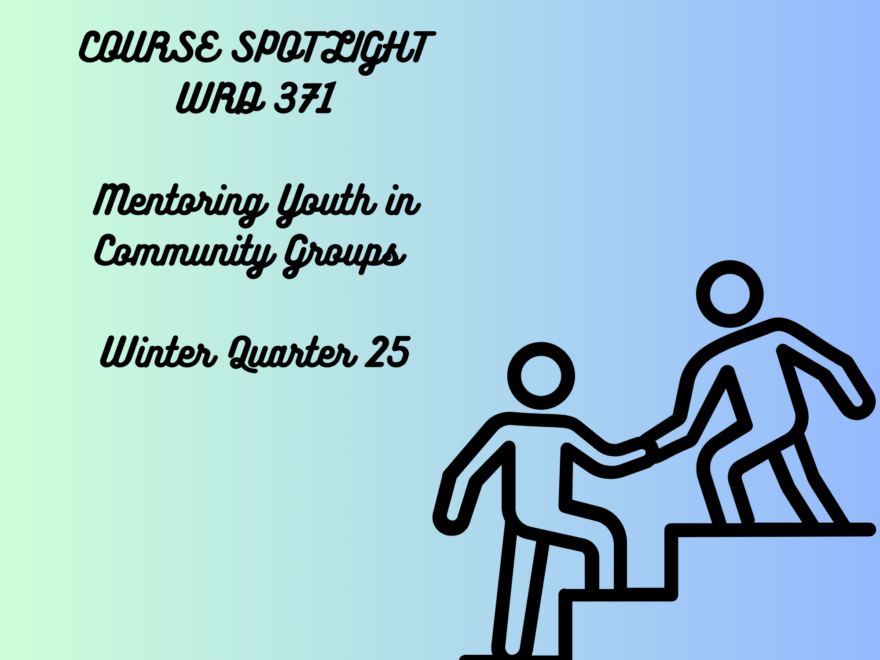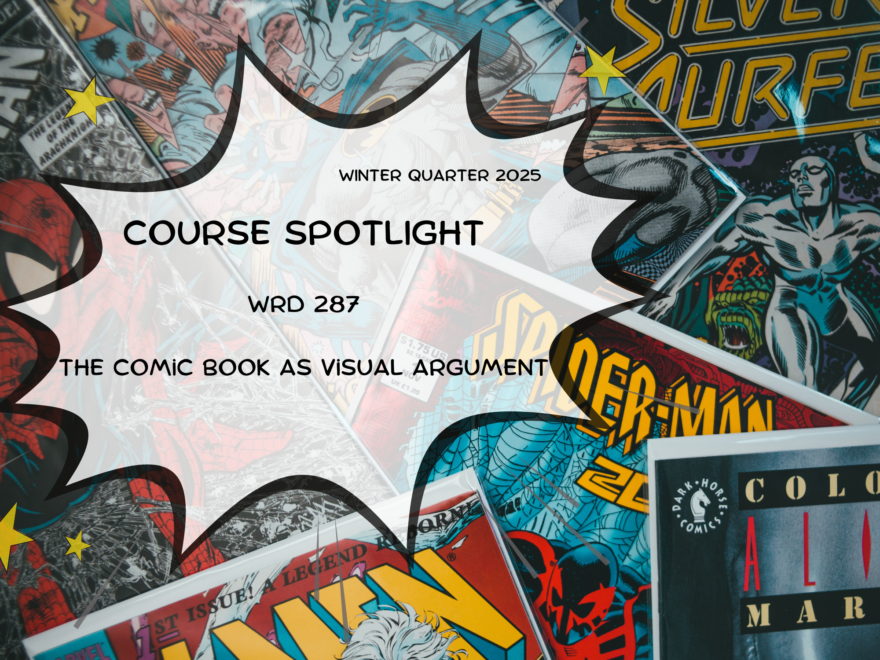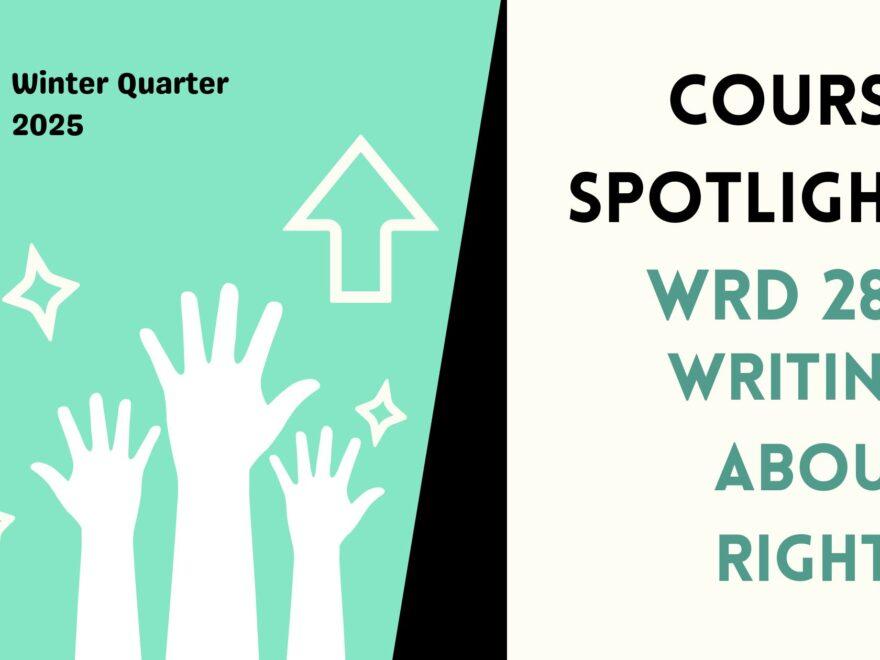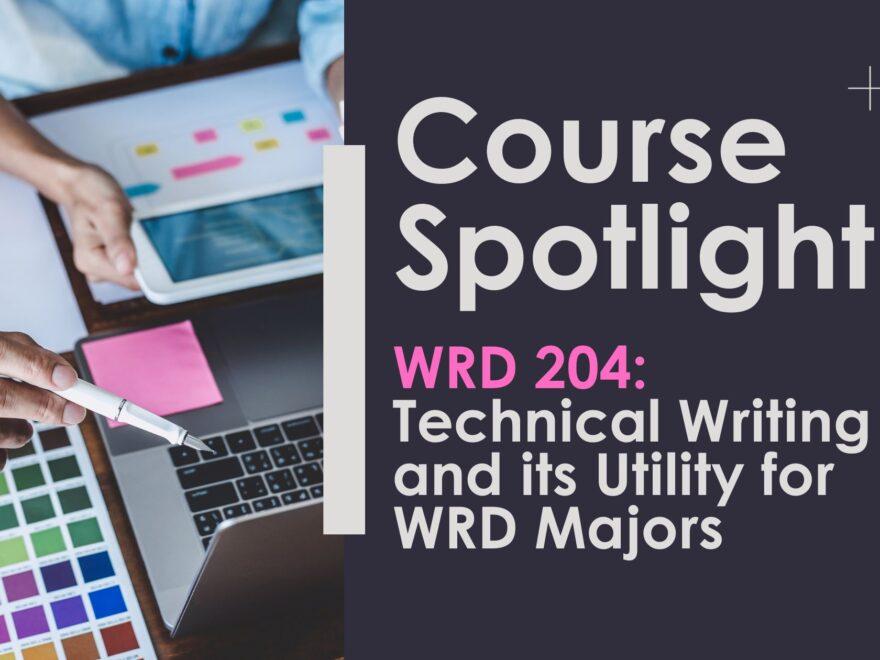Scheduled intentionally in Spring Quarter as changes in the environment become more easily perceptible, WRD 283 Environmental Writing, taught by Dr. Jason Kalin, offers more than just Social, Cultural, Behavioral Inquiry (SCBI) credit. It offers a chance to grow along with nature into new perspectives. What is Environmental Writing? In this course, environmental writing is writing about the environment and nature, but with the rhetorical understanding that the environment and nature are not just “out there” – external to or separate from humans. The class tries to teach that we are not separate from our environment. We are nature and
Continue reading